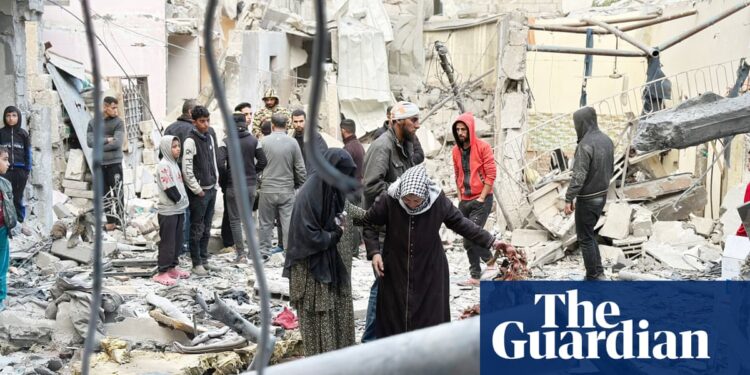The chair of Amnesty International’s Israeli branch and two board members have resigned over the human rights group’s report accusing Israel of committing genocide in the Gaza Strip.
Daniil Brodsky and the board members stepped down on Thursday, after the group said in a statement the report had “not proved genocidal intent beyond a reasonable doubt”.
The local branch, which operates as a separate charity from the international organisation, said there were nevertheless suspicions that Israel had committed “widespread violations of international law” that “may amount to crimes against humanity and ethnic cleansing”.
The 296-page report, examining events in Gaza between October 2023 to July 2024, found that Israel had “brazenly, continuously and with total impunity … unleashed hell” on the strip’s 2.3 million population, noting that the “atrocity crimes” against Israelis by Hamas on 7 October 2023, which triggered the war, “do not justify genocide”.
While its publication was largely welcomed by Palestinians and humanitarian groups, it was met with fury in Israel. “The deplorable and fanatical organisation Amnesty International has produced a fabricated report that is entirely false and based on lies,” Israel’s foreign ministry said in a statement.
Multiple attempts to broker a ceasefire and hostage release deal in the war in Gaza, now raging for 14 months, have failed, although mediator Qatar said on Thursday it would resume its role, raising tentative hopes that progress could be made in fresh negotiations.
Egypt, another major mediator, has put forward a proposal involving a temporary ceasefire lasting 45-60 days, with a staged hostage release and prisoner swap. A Hamas delegation met with Egyptian negotiators in Cairo earlier this week, and Israel is considering sending its own delegation in the next few days – the most movement on talks since the last round collapsed in August.
The Egyptian proposal also suggests that the West Bank-based Palestinian Authority take control of the Rafah crossing between Gaza and Egypt, which Israel seized in May, and a substantial increase in the supply of aid. An average of 50 trucks entered Gaza through the Kerem Shalom crossing with Israel in November, UN data shows. Aid agencies say at least 500 are needed to meet the population’s needs amid a dire humanitarian crisis and the approach of winter.
In Gaza, at least 39 people were killed by Israeli fire in the preceding 24 hours, according to medics, including at least 20 who died when an overnight airstrike set alight cooking gas canisters and tents tents housing displaced families in what Israel has dubbed a “humanitarian zone”. Israel said the strike targeted senior Hamas operatives, whom it did not identify.
Other Israeli strikes reported on Thursday hit Gaza City, where medics said an airstrike destroyed a house where an extended family had taken shelter and damaged two nearby homes, killing at least three people.
Residents searched for loved ones and belongings among the charred wreckage in Mawasi, a coastal area in the south of the strip, where hundreds of thousands of people have been forced to seek shelter.
At a funeral for those killed in Mawasi in nearby Khan Younis, Abu Anas Mustafa told Reuters that the Amnesty report was “a victory for Palestinian diplomacy”, although he said it “came late”.
“It is the 430th day of the war today, and Israel has been carrying out massacres and a genocide from the first 10 days of the war,” he said.







